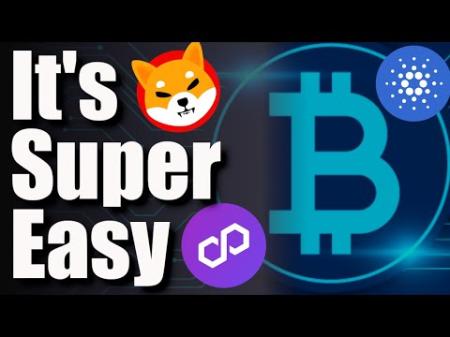While Bitcoin paved the way as the pioneer of cryptocurrencies, the digital landscape has evolved, giving rise to a multitude of alternative cryptocurrencies, often referred to as "altcoins." These coins offer unique features, use cases, and innovations beyond what Bitcoin provides. Let's delve into the fascinating world of altcoins.
**1. What Are Altcoins?
Altcoins, short for "alternative coins," are any cryptocurrencies other than Bitcoin. They emerged as developers sought to address limitations in Bitcoin's functionality or experiment with new ideas and technologies. Altcoins leverage blockchain technology but often introduce variations in terms of consensus mechanisms, mining algorithms, and governance structures.
**2. Diverse Types of Altcoins
Altcoins can be categorized into several types based on their functionalities:
-
Smart Contract Platforms: Ethereum is a prime example. These platforms enable the creation of decentralized applications (DApps) and smart contracts, allowing developers to build a variety of blockchain-based applications.
-
Privacy Coins: Monero (XMR) and Zcash (ZEC) prioritize privacy by implementing advanced cryptographic techniques, making transactions more confidential and untraceable.
-
Forked Coins: Some altcoins are created by forking (branching off) from existing blockchains. For instance, Litecoin (LTC) is a fork of Bitcoin, with modifications to improve speed and efficiency.
-
Stablecoins: Tether (USDT) and USD Coin (USDC) are examples designed to maintain price stability by pegging their value to traditional fiat currencies.
-
Utility Tokens: These tokens, often issued through Initial Coin Offerings (ICOs) or token sales, represent access to a specific platform or service. Binance Coin (BNB) is a utility token used on the Binance exchange.
**3. Use Cases and Innovations
Altcoins aim to serve various purposes and address specific needs in the cryptocurrency space:
-
Scalability: Some altcoins focus on solving scalability issues that may limit the transaction throughput of certain blockchains.
-
Interoperability: Projects like Polkadot and Cosmos aim to enhance blockchain interoperability, allowing different blockchains to communicate and share information seamlessly.
-
Energy Efficiency: Concerns about the environmental impact of cryptocurrency mining have led to the development of energy-efficient alternatives like Chia (XCH) that leverage Proof of Space and Time consensus.
**4. Risks and Considerations
Investing in altcoins carries both potential rewards and risks. While some altcoins have seen substantial growth, the market is highly volatile, and some projects may not fulfill their promises. Conduct thorough research, consider the project's team, technology, and community support before investing.
**5. The Evolving Altcoin Ecosystem
The altcoin space is dynamic, with new projects continually entering the scene. Stay informed about technological advancements, partnerships, and regulatory developments that may impact the altcoin market.
**6. Conclusion: Navigating the Altcoin Universe
As the cryptocurrency landscape expands, altcoins contribute to the diversity and innovation within the digital economy. Whether you're interested in exploring new technologies, supporting specific use cases, or diversifying your investment portfolio, the world of altcoins offers a myriad of opportunities. Stay curious, stay informed, and embark on a journey through the evolving altcoin universe.










